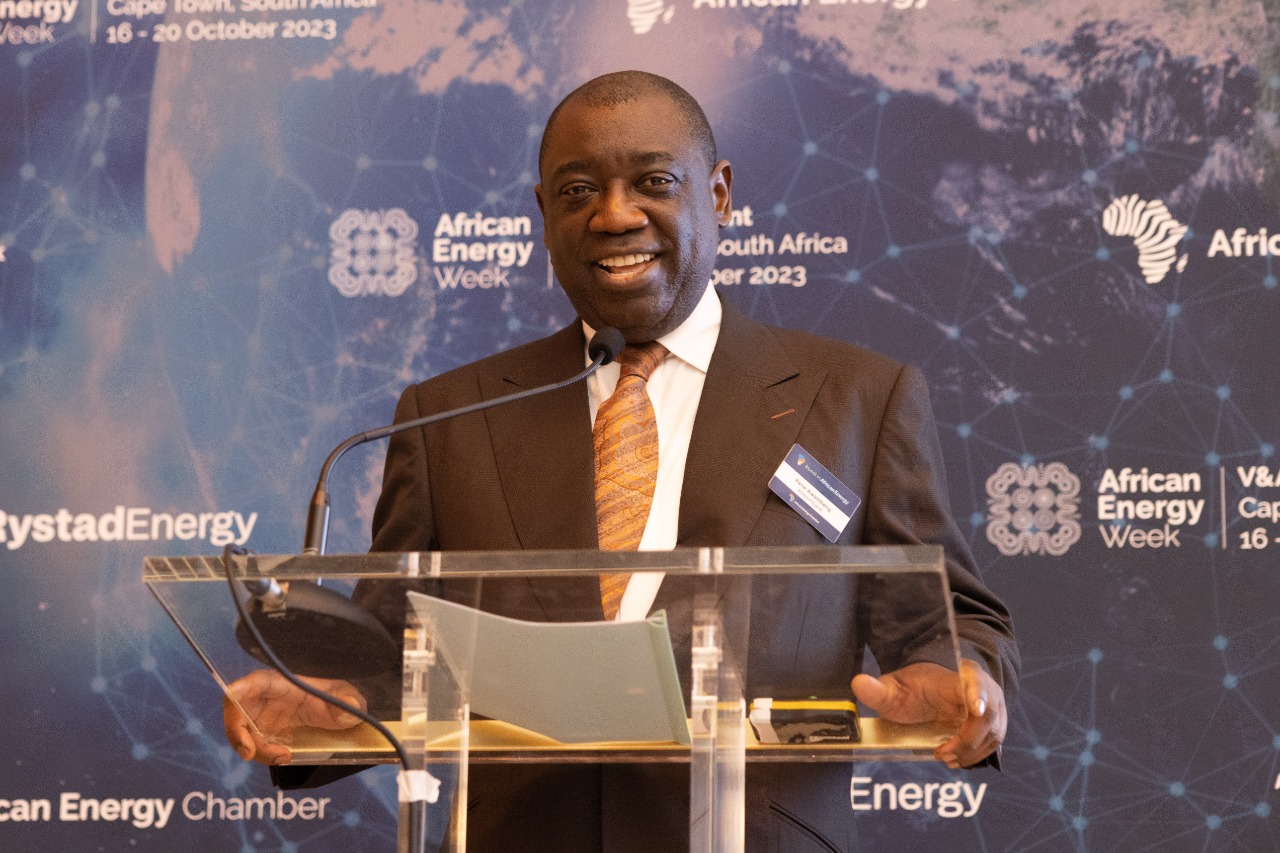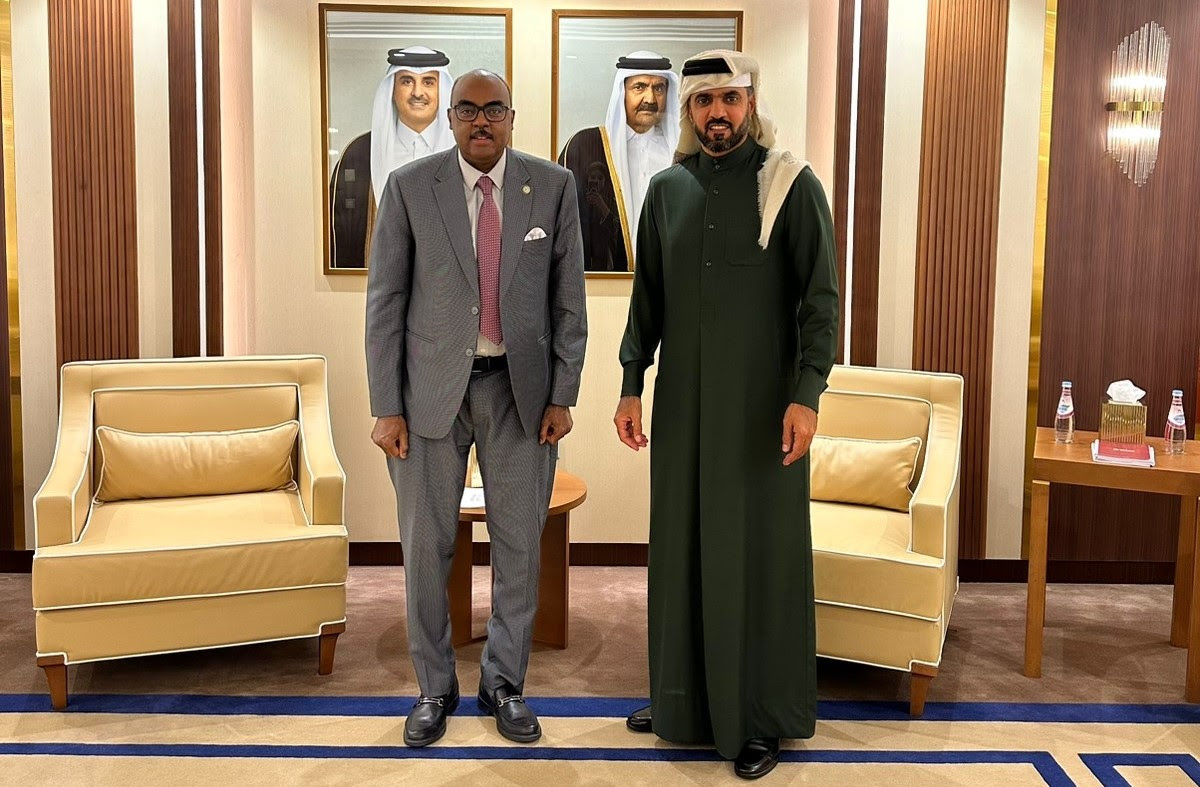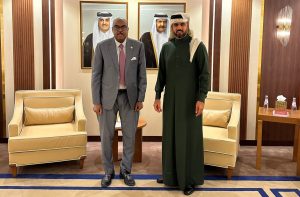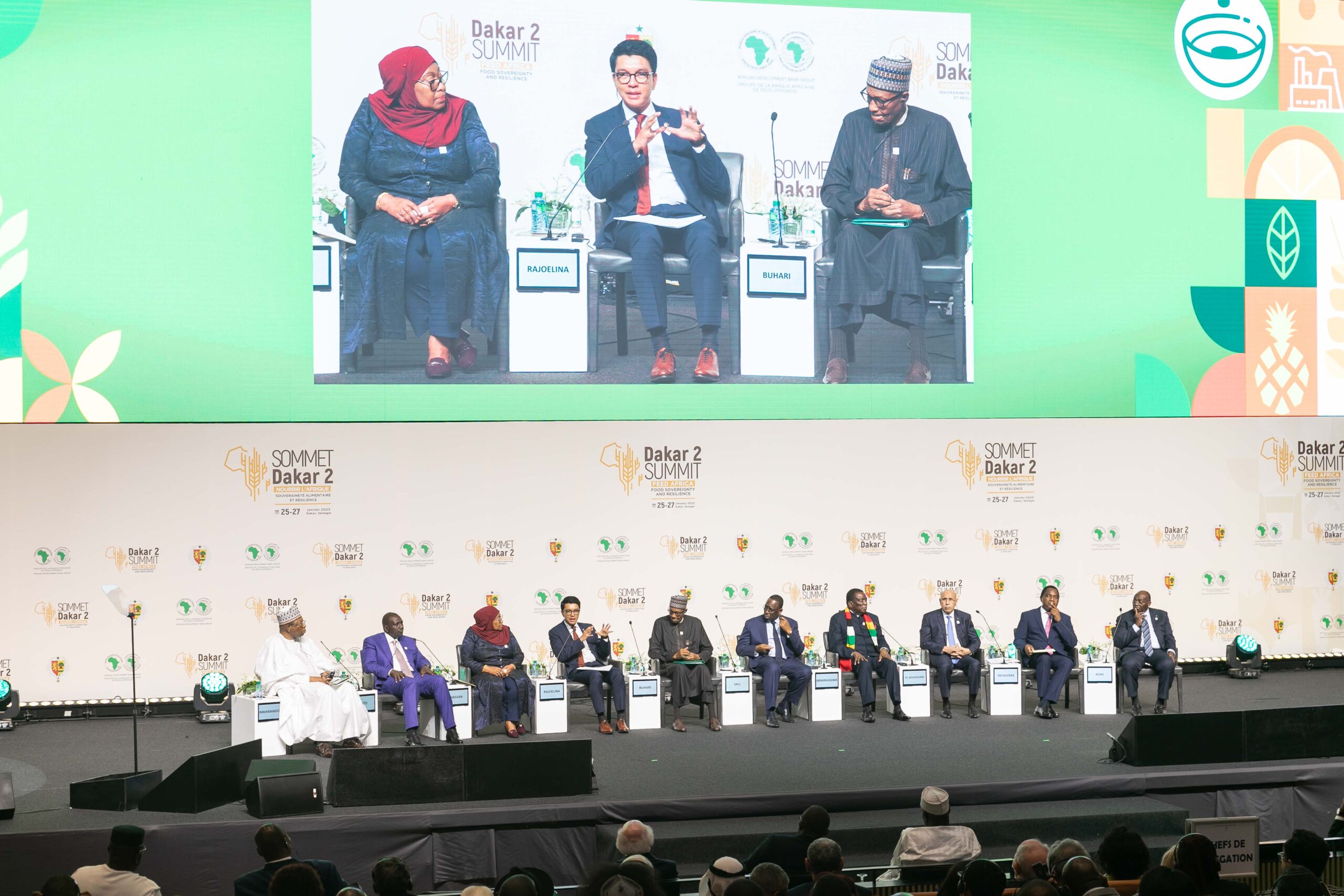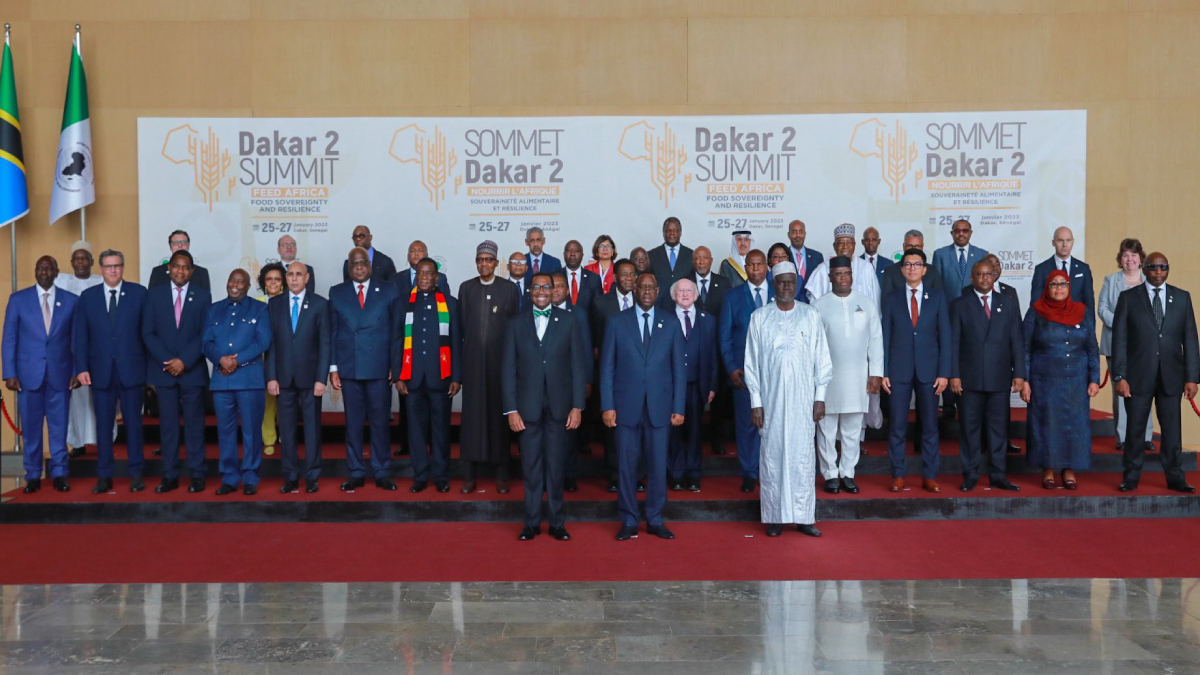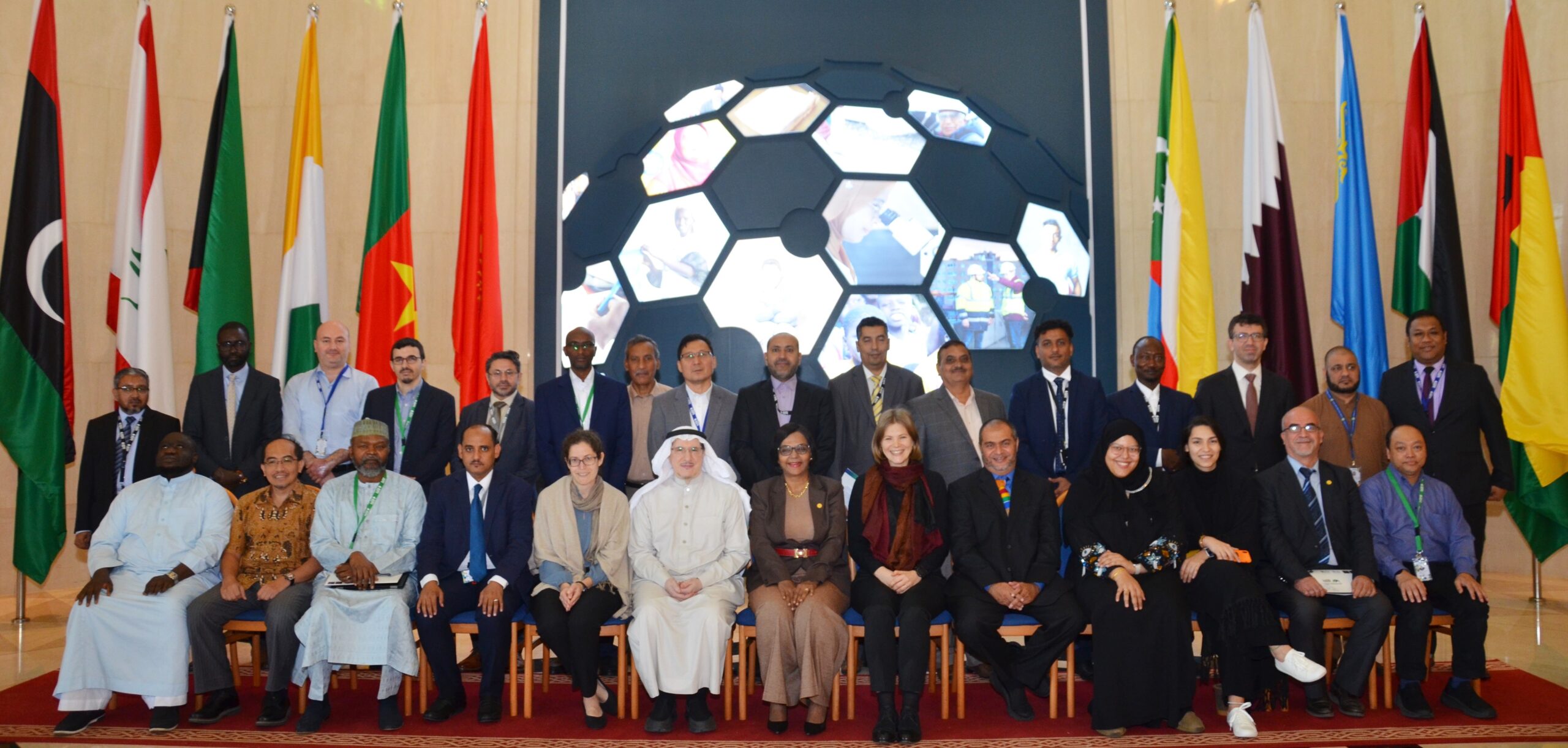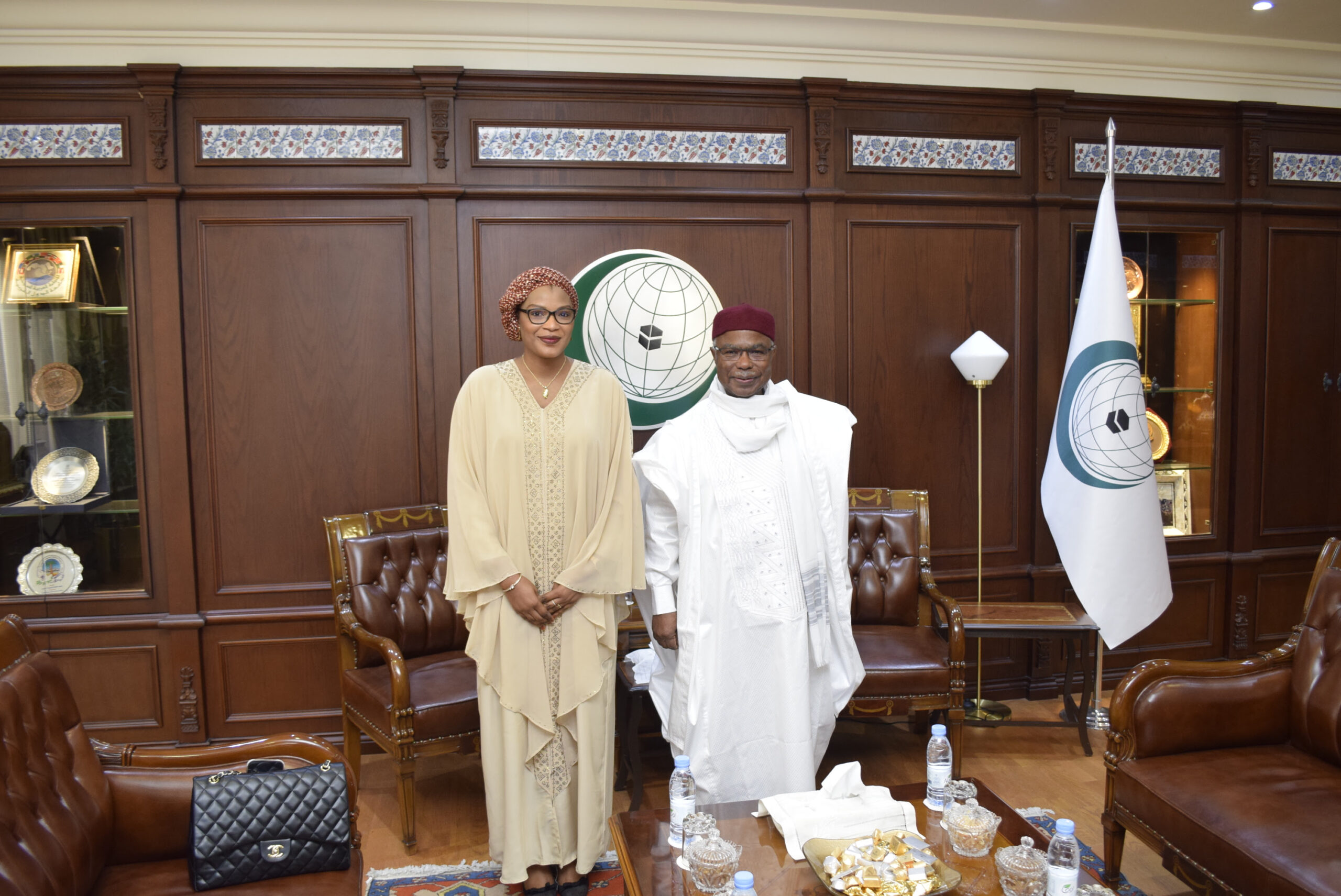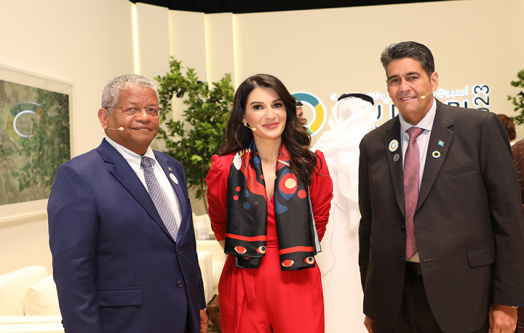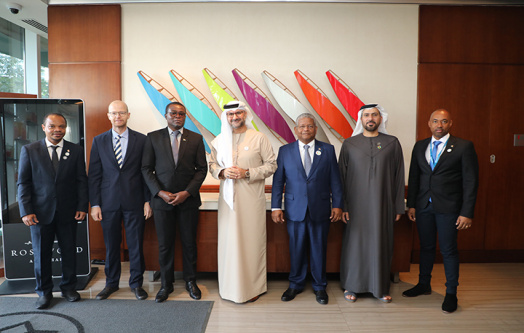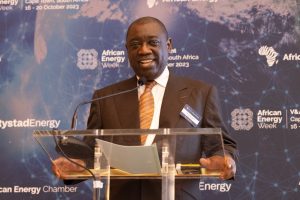
| Speaking during the Invest in African Energy Reception in London, Afreximbank’s Global Head of Client Relations, Rene Awambeng provided insight into what the institution’s recommendations are regarding Africa’s climate agenda |
| LONDON, United Kingdom, January 27, 2023/ — The Invest in African Energy Reception (https://AECWeek.com/news/) kicked off in London with opening remarks by African Energy Chamber Executive Chairman, NJ Ayuk, and Rystad Energy Co-Founder and Chief Analyst, Per Magnus Nysveen, followed by an opening address delivered by Rene Awambeng, Global Head of Client Relations at the African Export-Import Bank – a partner of the event. During his address, Awambeng provided insight into what the institution’s recommendations are regarding Africa’s climate agenda.
Firstly, Awambeng emphasized that Africa only accounts for less than 3% of global emissions, and therefore should be recognized as not the cause of excessive carbon, but rather, the victims of climate change. At the same time, considering the many oil-dependent economies in Africa, with GDP measuring as high as 25% for some, the continent should be able to establish a sensible plan for a just and fair transition. “We must use this opportunity to promote an approach to reducing global carbon emissions while sustaining current livelihoods which Africa is championing. The transition to green energy must be sensible, pragmatic and rational. It must recognize the enormity of the continent’s unmet economic development aspirations, the necessity to take urgent actions to address its ever-widening development gap and the continent’s vulnerability to climate change,” Awambeng stated. As such, Awambeng detailed a strategy towards a just and inclusive transition. Key aspects include supporting the implementation of the African Continental Free Trade Agreement (AfCFTA) to reduce emissions associated with shipping, moving away from exporting raw minerals that support the green economy and scaling up domestic value chains; enhancing foreign capital to finance the just transition and establishing African-based financing mechanisms to support industry growth. “We must give ourselves a breather to use the natural resources at our disposal to urgently deliver our development needs and simultaneously deploy these to promote investments in green energy. We must proactively and collectively intensify our efforts to implement the AfCFTA, as it is a clear path to mitigating carbon emissions while sustaining lives and livelihoods. We must all support the creation of the Africa Energy Transition Bank so that the continent can take control of its own future. We must back the African Energy Chamber (https://EnergyChamber.org/) so that it can intensify its thought leadership on this subject and ensure that Africa’s voice is heard as loudly as possible on issues that matter to us regarding energy.” Meanwhile, Awambeng emphasized the need to take urgent action to address the development gap in Africa and the continent’s vulnerability to climate change. In addition to energy investment, focus needs to be placed on climate investment, with the continent requiring up to $277 billion per annum to combat climate change. With Africa currently receiving less than $28 billion of the required funds, Awambeng urged the developed world to honor its commitments to climate financing and incentivized African stakeholders to create their own mechanisms and instruments to honor such commitments. “Afreximbank is supporting the promotion of a number of such innovative instruments and programs that can catalyze global finance and help close the funding gap for the necessary climate action while not sacrificing the development priorities of the continent. The Liquidity and Sustainability Facility represents one such innovative instrument…Initially launched by UNECA at COP26 in Glasgow, we expect to conclude the first deal in the course of this conference, to be fully funded by the Afreximbank.” In closing, Awambeng reiterated the need for a just transition in Africa, one that prioritizes carbon emission reduction and economic growth, simultaneously. “While decarbonization is at the center of the global climate agenda, it is evident that Africa, which has hardly carbonized, cannot contribute much to decarbonization. Africa’s priority is to find the money to fight poverty and fund mitigation and adaptation investments.” Distributed by APO Group on behalf of African Energy Chamber. SOURCE |
Distributed by :APO Group
